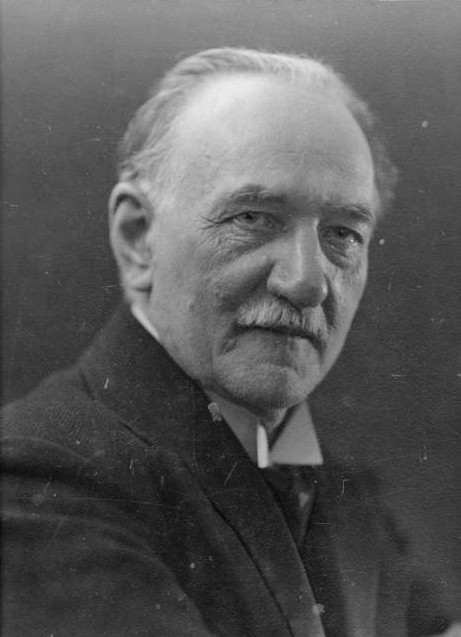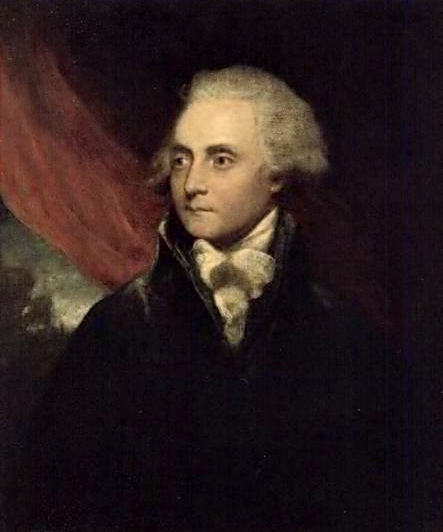|
Jessika (opera)
''Jessika'' is a 1905 Czech-language opera by Josef Bohuslav Foerster to a libretto after Shakespeare's ''The Merchant of Venice'' and named after the character Jessica in that play.Michael Neill, David Schalkwyk, ''The Oxford Handbook of Shakespearean Tragedy'', 2016, p. 749: "Above all, the playwright has inspired major works in the opera: Bedřich Smetana's unfinished ''Viola'' (1874‒83), J. B. Foerster's ''Jessika'' (1904), Iša Krejčí's ''Pozdvižení v Efesu ''Pozdvižení v Efesu'' (Turmoil in Ephesus) is a Czech-language opéra bouffe by Iša Krejčí to a libretto by Josef Bachtík based on William Shakespeare, Shakespeare's ''The Comedy of Errors''. It was written from 1939 until 1943.Michael Neill ...'' (The Turmoil in Ephesus, after ''The Comedy of Errors'', 1943), Karel ... References 1905 operas Compositions by Josef Bohuslav Foerster Czech-language operas Operas Operas based on The Merchant of Venice {{opera-stub ... [...More Info...] [...Related Items...] OR: [Wikipedia] [Google] [Baidu] |
Josef Bohuslav Foerster
Josef Bohuslav Foerster (30 December 1859 – 29 May 1951) was a Czech composer and musicologist. He is often referred to as J. B. Foerster, and his surname is sometimes spelled Förster. Life Foerster was born in Prague. His ancestors were of Bohemian German ethnicity, but had assimilated into the Czech community. The family normally lived in Prague and was musical. His father, a composer also named Josef Foerster, taught at the Conservatory. (His father's students included Franz Lehár.) His brother was artist Viktor Foerster. Josef was educated accordingly, and duly studied there. He also showed an early interest in the theatre, and thought of becoming an actor. He taught music; one of his early students was composer and Stuttgart court pianist Anna Sick. From 1884 Foerster worked as a critic, and he would prove to be a writer of distinction. In 1893 he married the leading Czech soprano Berta Lautererová (Bertha Lauterer) in Hamburg, during ten years making his living ... [...More Info...] [...Related Items...] OR: [Wikipedia] [Google] [Baidu] |
Libretto
A libretto (From the Italian word , ) is the text used in, or intended for, an extended musical work such as an opera, operetta, masque, oratorio, cantata or Musical theatre, musical. The term ''libretto'' is also sometimes used to refer to the text of major liturgical works, such as the Mass (liturgy), Mass, requiem and sacred cantata, or the story line of a ballet. The Italian language, Italian word (, ) is the diminutive of the word ''wiktionary:libro#Italian, libro'' ("book"). Sometimes other-language cognates, equivalents are used for libretti in that language, ''livret'' for French works, ''Textbuch'' for German and ''libreto'' for Spanish. A libretto is distinct from a synopsis or scenario of the plot, in that the libretto contains all the words and stage directions, while a synopsis summarizes the plot. Some ballet historians also use the word ''libretto'' to refer to the 15- to 40-page books which were on sale to 19th century ballet audiences in Paris and contained ... [...More Info...] [...Related Items...] OR: [Wikipedia] [Google] [Baidu] |
The Merchant Of Venice
''The Merchant of Venice'' is a play by William Shakespeare, believed to have been written between 1596 and 1598. A merchant in Venice named Antonio defaults on a large loan taken out on behalf of his dear friend, Bassanio, and provided by a Jewish moneylender, Shylock, with seemingly inevitable fatal consequences. Although classified as a comedy in the First Folio and sharing certain aspects with Shakespeare's other romantic comedies, the play is most remembered for its dramatic scenes, and it is best known for the character Shylock and his famous demand for a " pound of flesh". The play contains two famous speeches, that of Shylock, " Hath not a Jew eyes?" on the subject of humanity, and that of Portia on " the quality of mercy". Debate exists on whether the play is anti-Semitic, with Shylock's insistence on his legal right to the pound of flesh being in opposition to his seemingly universal plea for the rights of all people suffering discrimination. Characters * ... [...More Info...] [...Related Items...] OR: [Wikipedia] [Google] [Baidu] |
Jessica (The Merchant Of Venice)
Jessica is the daughter of Shylock, a Jewish moneylender, in William Shakespeare's ''The Merchant of Venice'' (). In the play, she elopes with Lorenzo, a penniless Christian, and a chest of her father's money, eventually ending up in Portia and Bassanio's household. In the play's dramatic structure, Jessica is a minor but pivotal role. Her actions motivate Shylock's vengeful insistence on his "pound of flesh" from Antonio; her relationships with Lorenzo and Shylock serve as a mirror and contrast to Portia's with Bassanio and with her father; her conversion to Christianity is the end of Shylock's line's adherence to the Jewish faith. Literary critics have historically viewed the character negatively, highlighting her theft of her father's gold, her betrayal of his trust, and apparently selfish motivations and aimless behaviour. Since the end of the 20th century their views have been more moderate and nuanced, pointing to an alternative reading that allows her actions to be mo ... [...More Info...] [...Related Items...] OR: [Wikipedia] [Google] [Baidu] |
Viola (opera)
''Viola'' is an unfinished romantic opera by Bedřich Smetana. The libretto was written by Eliška Krásnohorská, and is based on Shakespeare's play ''Twelfth Night ''Twelfth Night, or What You Will'' is a romantic comedy by William Shakespeare, believed to have been written around 1601–1602 as a Twelfth Night entertainment for the close of the Christmas season. The play centres on the twins Viola an ...''. The composer did some work on it in 1874 and then came back to it in 1883, when he only managed to orchestrate a few scenes; the opera was left incomplete upon Smetana's death in 1884. Performance history A concert performance (of the unfinished work) was given on 15 March 1900 and it was staged at the Prague National Theatre on 11 May 1924. Roles Recordings * 1982, Zdeněk Košler (conductor), Prague National Theatre Orchestra and Chorus; Jiří Pokorný (Piano), Marie Veselá, Drahomíra Drobková, Dalibor Jedlička, Jaroslav Horáček, Miroslav Švejda, Kar ... [...More Info...] [...Related Items...] OR: [Wikipedia] [Google] [Baidu] |
Iša Krejčí
Iša František Krejčí (10 July 1904 – 6 March 1968) was a Czech neoclassicist composer, conductor and dramaturge. Life Krejčí was born in Prague. He studied history and musicology at Charles University and concurrently piano playing with Albín Šíma and composition at the Prague Conservatory with Karel Boleslav Jirák and Vítězslav Novák and conducting with Václav Talich. He worked for the Slovak National Theatre in Bratislava in 1928–32, Czech Radio in 1934–45, Olomouc Opera in 1945–58, and Prague National Theatre since 1958. As a conductor, he concentrated especially on the contemporary French repertoire and Igor Stravinsky's compositions. His reputation as a composer was established in 1925 with a Divertimento (or Cassation) for four wind instruments. With this work, based on Classical forms, he became known as a Czech representative of neoclassicism . He wrote the operas ''Antigone'' ("Antigona", after Sophocles, 1934) and ''An Uproar in Efes'' (" ... [...More Info...] [...Related Items...] OR: [Wikipedia] [Google] [Baidu] |
Pozdvižení V Efesu
''Pozdvižení v Efesu'' (Turmoil in Ephesus) is a Czech-language opéra bouffe by Iša Krejčí to a libretto by Josef Bachtík based on William Shakespeare, Shakespeare's ''The Comedy of Errors''. It was written from 1939 until 1943.Michael Neill, David Schalkwyk, ''The Oxford Handbook of Shakespearean Tragedy'', 2016, p. 749: "Above all, the playwright has inspired major works in the opera: Bedřich Smetana's unfinished ''Viola (opera), Viola'' (1874‒83), J. B. Foerster's ''Jessika (opera), Jessika'' (1904), Iša Krejčí's ''Pozdvižení v Efesu'' (The Turmoil in Ephesus, after The Comedy of Errors, 1943), Karel ... Recordings * "Co láska je? Co o ni vis?" Zdeněk Otava References 1943 operas Czech-language operas Operas based on works by William Shakespeare Works based on The Comedy of Errors Operas {{opera-stub ... [...More Info...] [...Related Items...] OR: [Wikipedia] [Google] [Baidu] |
1905 Operas
Nineteen or 19 may refer to: * 19 (number) * One of the years 19 BC, AD 19, 1919, 2019 Films * ''19'' (film), a 2001 Japanese film * ''Nineteen'' (1987 film), a 1987 science fiction film * '' 19-Nineteen'', a 2009 South Korean film * '' Diciannove'', a 2024 Italian drama film informally referred to as "Nineteen" in some sources Science * Potassium, an alkali metal * 19 Fortuna, an asteroid Music * 19 (band), a Japanese pop music duo Albums * ''19'' (Adele album), 2008 * ''19'', a 2003 album by Alsou * ''19'', a 2006 album by Evan Yo * ''19'', a 2018 album by MHD * ''19'', one half of the double album '' 63/19'' by Kool A.D. * ''Number Nineteen'', a 1971 album by American jazz pianist Mal Waldron * ''XIX'' (EP), a 2019 EP by 1the9 Songs * "19" (song), a 1985 song by British musician Paul Hardcastle * "Stone in Focus", officially "#19", a composition by Aphex Twin * "Nineteen", a song from the 1992 album ''Refugee'' by Bad4Good * "Nineteen", a song from the 20 ... [...More Info...] [...Related Items...] OR: [Wikipedia] [Google] [Baidu] |
Compositions By Josef Bohuslav Foerster
Composition or Compositions may refer to: Arts and literature *Composition (dance), practice and teaching of choreography *Composition (language), in literature and rhetoric, producing a work in spoken tradition and written discourse, to include visuals and digital space *Composition (visual arts), the plan, placement or arrangement of the elements of art in a work * ''Composition'' (Peeters), a 1921 painting by Jozef Peeters *Composition studies, the professional field of writing instruction * ''Compositions'' (album), an album by Anita Baker *Digital compositing, the practice of digitally piecing together a still image or video *Musical composition, an original piece of music, or the process of creating a new piece Computer science *Compose key, a key on a computer keyboard *Compositing window manager a component of a computer's graphical user interface that draws windows and/or their borders *Function composition (computer science), an act or mechanism to combine simple functi ... [...More Info...] [...Related Items...] OR: [Wikipedia] [Google] [Baidu] |
Operas
Opera is a form of Western theatre in which music is a fundamental component and dramatic roles are taken by singers. Such a "work" (the literal translation of the Italian word "opera") is typically a collaboration between a composer and a librettist and incorporates a number of the performing arts, such as acting, scenery, costume, and sometimes dance or ballet. The performance is typically given in an opera house, accompanied by an orchestra or smaller musical ensemble, which since the early 19th century has been led by a conductor. Although musical theatre is closely related to opera, the two are considered to be distinct from one another. Opera is a key part of Western classical music, and Italian tradition in particular. Originally understood as an entirely sung piece, in contrast to a play with songs, opera has come to include numerous genres, including some that include spoken dialogue such as ''Singspiel'' and ''Opéra comique''. In traditional number opera, si ... [...More Info...] [...Related Items...] OR: [Wikipedia] [Google] [Baidu] |




